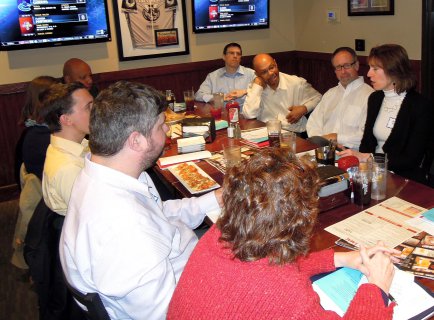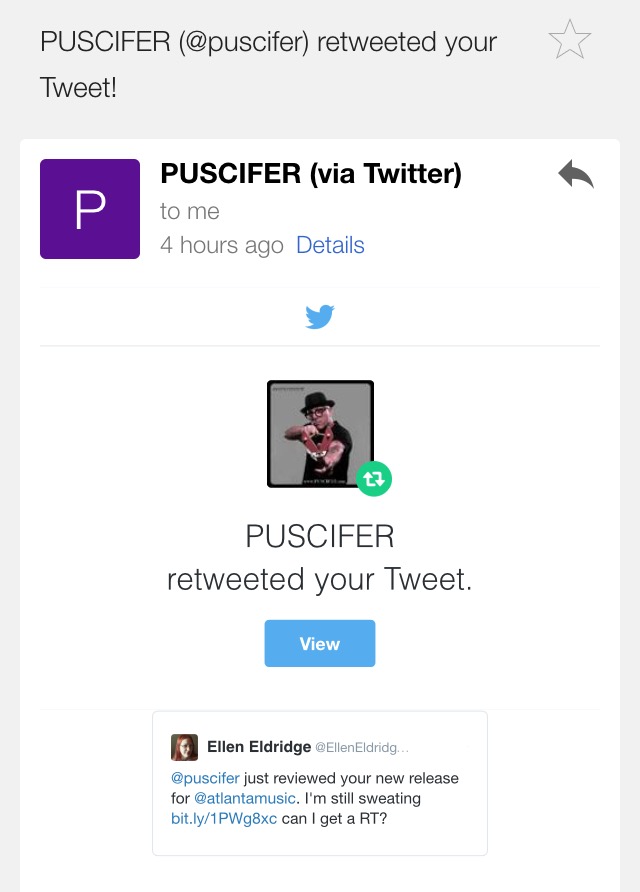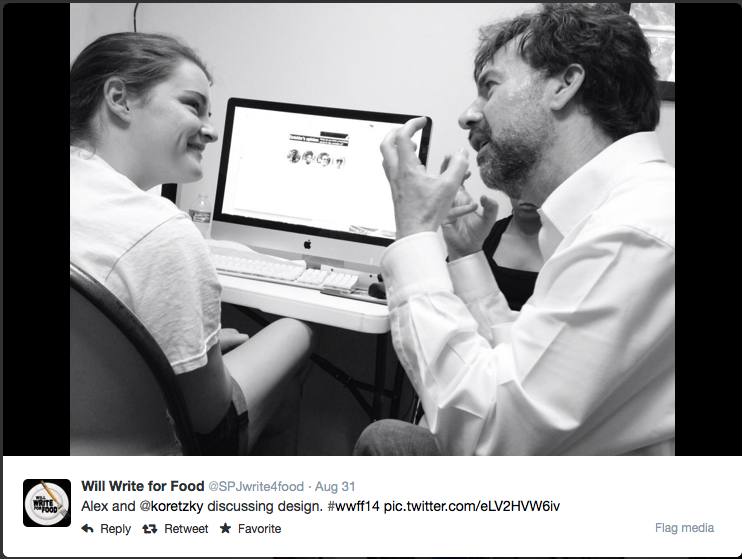
Slapping wrists of those who write the news: journalists discuss First Amendment violations in Atlanta
By Ellen Eldridge, President-Elect, SPJ Georgia

Atlanta, Georgia – John Ruch said he thought someone was being a jerk by waving a hand in front of his cell phone as he tried to take a picture of a protester’s arrest Nov. 26. The Creative Loafing freelance reporter said he had a great view through the crowd in Atlanta, and he was trying to take photographs for his assignment.
Moments later, Ruch realized the hand belonged to an Atlanta police officer. The officer grabbed Ruch’s arm from behind and another officer nodded an okay to arrest Ruch and a few others, who he said seemed randomly chosen from the crowd. A police officer also confiscated his cell phone.
The Nov. 26 Atlanta protest marches were fueled by the Missouri grand jury’s Nov. 24 decision not to indict the white Ferguson police officer Darren Wilson, who shot and killed an unarmed black teenager, Michael Brown, on Aug. 9.
“’You’re under arrest. Get on the ground,’ were her first words to me,” Ruch said during a gathering of journalists at an Atlanta pub on Martin Luther King Day, Jan. 19. On this national holiday, the Society of Professional Journalists – Georgia organized a serious chat to discuss the recent First Amendment rights violations in Georgia.
WXIA/WATL News Director Jennifer Rigby attended the gathering as a representative for 11 Alive News because one of the station’s video photojournalists, Tyson Paul, was arrested at the same night as Ruch. Along with Ruch, Creative Loafing Editor-in-Chief Debbie Michaud and News Editor Thomas Wheatley attended. Creative Loafing is an Atlanta alternative online and print news weekly.
Board members from SPJ Georgia, Kennesaw State University SPJ Chapter President Alex Moore and guests joined the discussions with Georgia First Amendment Foundation Executive Director Hollie Manheimer and GFAF board member and Kennesaw University Journalism Professor Carolyn Carlson to address the rights of the press. Even though the amendment is highly regarded by those actively reporting under the freedom of the press, all American citizens have protection under the First Amendment.
Ruch described how his excitement turned to confusion and fear as he spotted his news editor through the masses of people and police.
“I kept asking why I was being arrested, and I see poor Thomas (Wheatley) wandering the sidewalk somehow free to commit journalism on his own,” Ruch said.
Journalists around the table laughed, but then the mood switched to stern opinions on why it should or shouldn’t matter if a journalist carries a formal press credential to identify them as a member of the press, and furthermore, asked why is it illegal to be arrested for taking a photo of an arrest from the sidewalk.
Ruch was asked for his press credentials by the Atlanta police officer who arrested him. Would presenting a press credential have stopped the police officer from arresting the journalist? Unknown. Ruch said journalists or citizens don’t need to carry press credentials under freedom of speech guaranteed by the First Amendment. As a freelance reporter for Creative Loafing, Ruch was not issued a press credential from the publication. Since his arrest on Nov. 26, Creative Loafing does provide press credentials to their freelance contributors, said Michaud.
When Wheatley walked over to where Ruch’s arrest was occurring, he said he asked the officer, “Is this your first time arresting a journalist?” Next, looking down at his cell phone, Wheatley said he was frustrated because his cell phone had only one bar of battery power left, but as a news editor facing one of his reporters’ arrest, he went ahead and made the call to a public information officer for the Atlanta Police Department. He later was able to charge his phone at a friend’s home nearby and continued to communicate with Michaud throughout the evening and early morning hours of Thanksgiving Day.
Many protesters were arrested or detained by Georgia and Atlanta law enforcement, loaded into a corrections buses and taken to precincts throughout Atlanta and to Turner (baseball) Field.
Only hours before Ruch and Paul were to appear in front of a judge, they were bailed out. The two journalists appeared in court and stood before a judge in a packed courtroom to hear their charges. Both Wheatley and Rigby agreed the Atlanta city attorney, police chief and mayor apologized quickly. The city attorney was “fairly horrified” and charges had already been dropped, Rigby said.
“Cops need better training,” she added in regard to the newer and lower ranking officers’ lack of knowledge of the First Amendment and arresting journalists doing their jobs by covering breaking news.
The two arrested journalists were bailed out quickly “as is possible” with the booking process, Manheimer said, adding that in terms of advocacy, the burden is not on the journalist. “There isn’t a class of people who have more First Amendment rights than others,” she said.
George Chidi, a freelancer who fought a temporary restraining order filed against him by a political candidate, jumped in to the conversation.
“They do this crap all the time,” Chidi said. “How do we punish them for it?”
Rigby said 11 Alive wouldn’t be pursuing the case further now that the reporter is free and charges have been dropped. The photojournalist was actually filming live when a relatively young Atlanta officer made the arrest. Rigby says the photojournalist told the police officer he was on television and the officer said, “That’s awesome.” The entire arrest was filmed by one of the station’s choppers, Rigby said.
Though Ruch and Paul spent a handful of hours in jail Nov. 26 and Chidi in October was unable to blog for two or more weeks, these Georgia journalists might not see a lasting impact on their careers but did voice that the aggravation was unnecessary and illegal.
Chidi did note that the two weeks he was legally prevented from blogging were the last two weeks of the election he was covering. That makes the time significant, he said.
Rather than seeking revenge, SPJ Georgia and the journalists gathered advocate for more training of new police officers and to continue the conversation on the First Amendment with law enforcement and the general public.
Rigby suggested that the public’s opinion of media doesn’t always support the mission. “People think we’re part of the problem,” she said.
Ruch added that some people think reporters just bring grief. Others may think that if the media didn’t cover protesters, the protests would stop, he said. Even though these sentiments might be said by some individuals, the Supreme Court upholds the freedom of the press to act as a check on government and a way for the public to stay informed.
“Not many people cared about me getting arrested,” Ruch said, but he said he wanted to report the stories of those in the paddy wagon with him. He was less concerned with sharing his own story than reporting about those locked up with him.
“Their stories would be great. Why doesn’t anyone care?” he asked.
To answer those tough questions, the journalists who gathered on Jan. 19 focused on the re-dedication to the craft: stronger storytelling, more in-depth reporting and making First Amendment rights issues more readable.
As for a citizen’s right for freedom of speech or a journalist’s freedom of the press, many at the gathering said “we, like them, are just doing our jobs” under the First Amendment.


